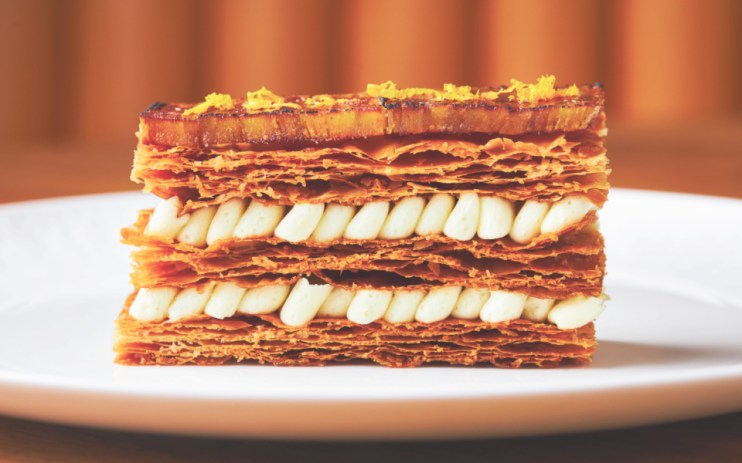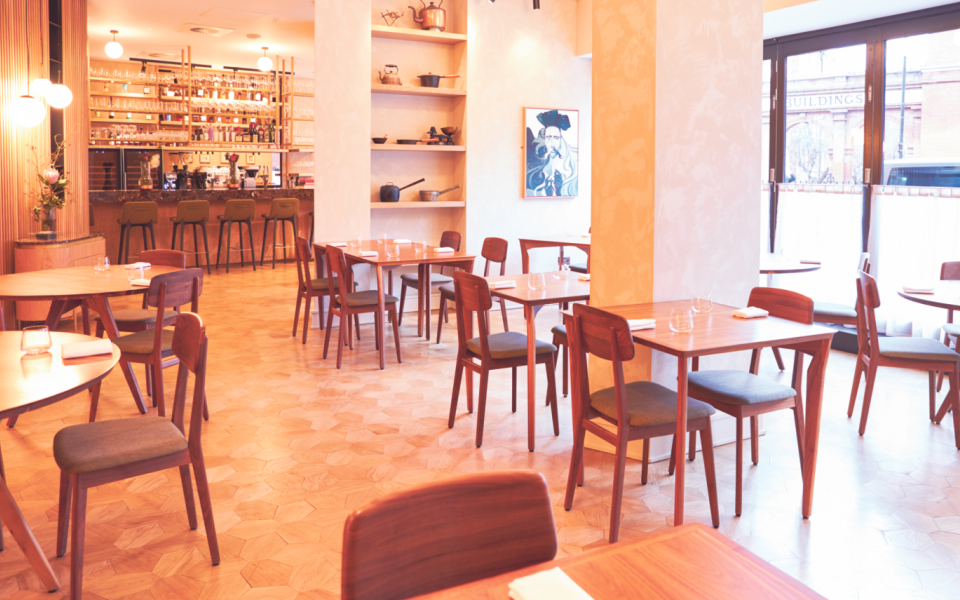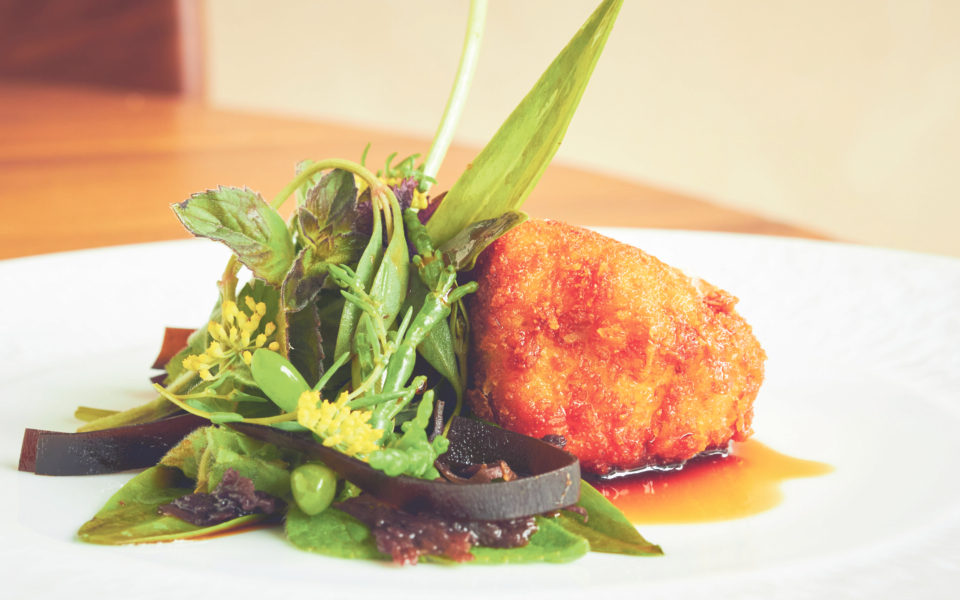Trivet restaurant review: A masterclass in the fine art of simplicity

When you visit the Fat Duck website you’re greeted by the message: “Welcome questioneer… Are you ready?” Beside this plays a video of a steam train whizzing past a rapidly-growing crystal formation that, like an acid trip, becomes a lime, then a flower. Am I ready? I’m not sure.
Scroll down and the restaurant’s famous founder Heston Blumenthal instructs you to “question everything”, before recalling a transformative memory: “In the lab, with the phone turned off, a view of snow-capped mountains through the window, experimenting with liquid nitrogen and injecting asparagus with carrot oil, I remember thinking, this is what it’s all about.”
Heston – a man we’re all on first-name terms with – has made a career and a fortune trading off this mad scientist persona, leaning into the absurdity and, for a while at least, changing the face of British fine dining.
For 12 years Jonny Lake was Heston’s executive head chef at the Fat Duck. He might have been there on the afternoon described above, unable to check his phone, watching Heston doing terrible things to an asparagus.
At the end of 2019 Lake and Fat Duck sommelier Isa Bal struck off on their own, opening Trivet in Bermondsey at what must have been the worst time to open a restaurant since the second world war. Two years of a pandemic can really suck the wind out of a launch, and Trivet has flown a little under the radar, with some of the most dedicated restaurant nerds I know still to eat there.

So, what to expect from two of Heston’s most trusted disciples… Multi-sensory dishes created using an unholy alchemy of chemistry and gastronomy? Things zapped with electricity, frozen in liquid nitrogen or spun in a centrifuge? Snail porridge?
No. Lake and Bal have created the opposite restaurant, a restrained, refined spin on that elusive, unhelpful term “modern British”. It has echoes of the New Nordic movement, with its elegant simplicity in both the look and feel of the food, and the look and feel of the space.
Taking over what used to be Portuguese restaurant Londrino, a bar now dominates one side of the space (a separate bar menu was trialled but dropped) – this is Bal’s domain, where you can stop by to sample the 300-strong wine list. The main dining room is now kitted out in various warm, woody hues; it’s pleasant if unremarkable.
The contrasts with The Fat Duck continue: there’s no tasting menu here, just a concise à la carte populated by deceptively simple dishes such as grilled venison and steamed turbot.
I was fairly sure Trivet was going to be my kind of place when our pre-starter snack of crackers arrived: four vivid shards the texture of prawn crackers, flavoured with beetroot, purple cabbage, onion and sumac.
I started, as one must when it’s on the menu, with veal sweetbreads, which did not disappoint: the perfectly-cooked nugget of silky offal is served with a simple kombu (seaweed) salad. Across the table was a thick tangle of pici pasta submerged in a satisfyingly robust crab bisque. Really, really good.
The mains continue the fine form, with the aforementioned venison served with oyster mushrooms and beetroot in a rich, sweet jus. It’s a nice counterpoint to the poached chicken, made up of two slivers of meat so delicate they part to the gentlest nudge, served with a neat pile of rapini.
Describing why, exactly, this food is so good is tricky, because the venison tastes exactly like venison and the chicken tastes exactly like chicken, albeit venison and chicken someone has worked a lifetime to perfect.

Having made it through 700 words without really mentioning the wine is something of a travesty, because it’s given equal billing to the food. I asked Bal to pick a few glasses to match our dishes, the most memorable being a wonderful Armenian areni noir, a sort of energetic, punchy cousin of pinot noir that’s a great compromise between pairing with food and drinking on its own on the terrace.
If boats are pushed out anywhere, it’s in the desserts, with the Hokkaido potato mille-feuille generating a bit of Insta-buzz. Served with sake and white chocolate mousse, and sake gelato, it’s apparently inspired by a trip Lake and Bal took to Japan, where they were given potatoes in butter alongside their sake in an izakaya. The combination awakened something in Lake and this dish was born. It’s actually not as out-there as it sounds, rather just a pleasant spin on the classic dessert, and were I not expecting to find potato, I’m not sure I’d have noticed it at all.
One thing Trivet does share with the Fat Duck is its prices. The four starters average £28.75, the five mains average £44.20 (or £47.25 if you don’t count the vegetarian option), and the four main desserts average £18. Even taking into account the bouji locale and the rising cost of ingredients, that stings, especially as you’re going to want to go big on the wine.
It never feels overpriced, though. Trivet is the result of two industry veterans at the top of their game throwing overboard everything that isn’t absolutely essential, and in doing so casting off the baggage that comes with spending more than a decade at one of the world’s most famous restaurants.
It’s a brave chef who turns his back on so many of the bells and whistles of modern dining – I suspect Lake never wants to inject asparagus with carrot oil ever again – instead trusting in the five or six ingredients sitting on a plate. It’s a miracle it survived the pandemic, really, and I hope it’s around for a long time to come.
• To book a table call 020 3141 8670, go to trivetrestaurant.co.uk, visit the restaurant at 36 Snowsfields, SE1 3SU
